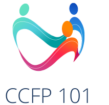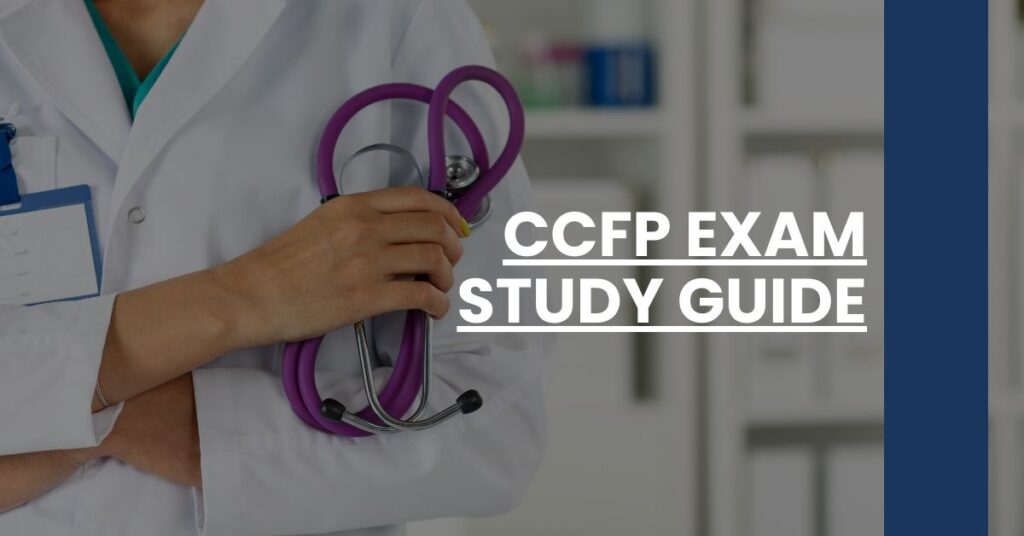Master your CCFP exam prep with this targeted study guide.
- Effective Study Strategies: Tailored tips to maximize your CCFP exam preparation efforts.
- Essential Resources: Curated list of must-have material for the CCFP study guide.
- Exam Day Tips: Key practices to ensure success on your CCFP day.
Navigate the CCFP exam smoothly with our expert study guide.
Understanding the CCFP Exam
When you step into the realm of family medicine, the Certification Examination in Family Medicine, commonly known as the CCFP exam, marks a significant milestone in your professional journey. It’s a rigorous test of your knowledge and skills, designed to measure your readiness to provide comprehensive care to patients of all ages.
The exam’s essence: The CCFP exam, which stands for Certification in the College of Family Physicians, assesses the competence of candidates who have completed an approved residency training program. It ensures that family physicians across Canada meet consistent standards of care.
Exam Format and Structure
- Exam components: The exam consists of two components – the Short Answer Management Problems (SAMPs) and the Simulated Office Orals (SOOs), each focusing on different aspects of clinical decision-making and patient interaction.
- Language options: Whether you’re comfortable in English or French, the exam is accessible in both languages, ensuring you can showcase your capabilities in the language you choose.
Skills Assessed
The CCFP exam evaluates a broad range of abilities crucial for a family physician. Mastery in clinical care, patient communication, and problem-solving are just a few of the essential skills that you’ll demonstrate. The exam revolves around real-world scenarios, mirroring the practical complexities present in a family practice setting.
Your in-depth understanding of the CCFP exam structure will empower you to tailor your study approach effectively, focusing on the areas that need the most attention. Begin with a clear picture of the exam’s outline and you’ll set yourself up for a successful study experience with this CCFP exam study guide.
Family Medicine Study Strategies
As you prepare for an exam covering such a vast specialty, adopting study strategies tuned specifically for family medicine is paramount. Utilizing a blend of various learning methodologies can not only solidify your knowledge but also enhance your ability to retrieve information during the exam.
Case-Based Learning
- Real-life scenarios: Engaging with clinical cases that mirror daily practice enriches your understanding and retention of medical concepts.
- Problem-solving: Tackling these cases strengthens your diagnostic and therapeutic decision-making skills, essential for both the SAMPs and SOOs.
Group Study Sessions
- Peer interaction: Collaborate with fellow aspirants to share knowledge, clarify doubts, and learn from each other’s experiences.
- Role-play practices: Simulate exam conditions by practicing SOO cases with peers to build confidence and refine your approach.
Active Recall Methods
- Testing yourself: Employ flashcards, quizzes, or teaching sessions to actively challenge your memory and recall.
- Spaced repetition: Utilize apps or systems that present information at strategic intervals to enhance long-term retention.
By weaving these strategies into your daily study routine, you can approach areas like patient-centered care and the up-to-date medical knowledge that are at the heart of the CCFP exam. A thoughtful integration of these methodologies into your CCFP exam study guide plan will make your preparation both efficient and effective.
Tackling Simulated Office Orals (SOOs)
The Simulated Office Oral (SOO) is a critical component of the CCFP exam that evaluates your clinical encounter skills, communication abilities, and clinical judgment. Preparing for the SOOs demands specific focus, as this is where you enact the role of a family physician in various clinical scenarios.
Understanding the SOO Format
- Clinical scenarios: You will be presented with a variety of patient cases, each requiring a nuanced approach tailored to the patient’s individual needs.
- Interpersonal communication: Your ability to build rapport, demonstrate empathy, and communicate effectively with patients is as important as your medical knowledge.
SOO Preparation Strategies
To excel in the SOOs, your preparation must include:
- Practice cases: Regularly work through practice cases, ideally with a study partner or mentor who can provide feedback on your performance.
- Role-playing sessions: Simulate the exam environment by enacting the patient-physician interaction, which can help alleviate anxiety and polish your communication skills.
By honing your ability to navigate complex patient interactions with poise and professionalism, you’ll be better positioned for success in the SOO part of the exam. Remember to contribute these experiences to your personalized CCFP exam study guide for an all-encompassing preparation.
Mastering Short-Answer Management Problems (SAMPs)
The SAMPs assess your ability to handle clinical problems effectively and efficiently. This section of the CCFP exam requires concise and structured responses that demonstrate clear reasoning and up-to-date medical knowledge.
Key Techniques for Answering SAMPs
When it comes to SAMPs, focus on:
- Structured responses: Develop a systematic approach to answering open-ended questions, which typically involve patient management, diagnosis, and treatment plans.
- Time management: Practice pacing yourself to ensure that you can address all questions within the time constraints of the exam.
Advancing your skills in providing clear, methodical responses within the SAMPs can greatly contribute to your overall CCFP exam study guide. Practice makes perfect, and the better you understand the SAMP format, the more adept you’ll become at expressing your clinical reasoning within the exam setting.
Self-Assessment and Feedback
Your ability to accurately gauge your readiness for the CCFP exam can be your greatest asset. Utilizing self-assessment tools and seeking constructive feedback are steps that can elevate your preparation from good to exceptional.
Maximizing Self-Evaluation
Consider the following for a comprehensive self-review:
- Practice exams: Engage with simulations of the actual exam under timed conditions to acquaint yourself with the experience and identify areas for improvement.
- Feedback loop: Seek input from mentors, peers, or even previous exam takers to gain insights into your performance and potential blind spots.
Incorporating a self-assessment and feedback routine into your CCFP exam study guide helps to ensure that your study plan is responsive to your evolving educational needs, closing gaps in knowledge as you identify them.
Managing Exam Day Stress and Anxiety
The ability to control stress and anxiety can influence exam performance just as much as technical knowledge. Develop strategies to maintain your composure and optimize your cognitive function on exam day.
Calming Techniques
Here are some key practices to consider:
- Relaxation exercises: Techniques like deep breathing, meditation, and progressive muscle relaxation can help calm your nerves and sharpen your focus.
- Positive framing: Replace negative thoughts with positive affirmations and visualize your success to build confidence.
By incorporating stress management practices into your daily routine, you improve your resilience, ensuring that anxiety doesn’t overshadow your hard work when it matters most.
Post-Exam Review and Continuous Learning
Reflecting on your performance after the CCFP exam is just as important as the preparation preceding it. This review process not only provides closure for your current effort but also sets the foundation for continuous learning in your medical career.
The Value of Reflection
- Identify strengths and weaknesses: Post-exam review can help pinpoint areas of strength to leverage and weaknesses to address in future learning.
- Lifelong learning: Embrace the mindset of continued education, which is the bedrock of being a competent and compassionate family physician.
Embedding the practice of reflection and the commitment to lifelong learning into your professional ethos can transform the experience of taking the CCFP exam from a singular goal into a stepping stone for ongoing development.
Conclusion: Next Steps After the CCFP Exam
Achieving CCFP certification is a commendable milestone that signals a new phase in your family medicine career. It’s a testament to your dedication and skill, and it opens doors to new opportunities in providing patient care.
Continuing Professional Development
- Stay connected: Engage with family medicine communities and professional networks to share experiences and continue growing.
- Maintenance of Certification: The College of Family Physicians of Canada offers the Maintenance of Certification Program (Mainpro+®) to support your ongoing professional development and ensure that your certification remains current and relevant.
Bear in mind that the CCFP exam is but a moment in your career, albeit a significant one. What follows is a lifelong journey of learning, growth, and service to your patients. Your commitment to excellence doesn’t end with the exam—it merely evolves into new forms of engagement and mastery within the rewarding field of family medicine.
CCFP exam study guide: Your essential resource for mastering family medicine certification. Tips, strategies, and detailed subject reviews.

